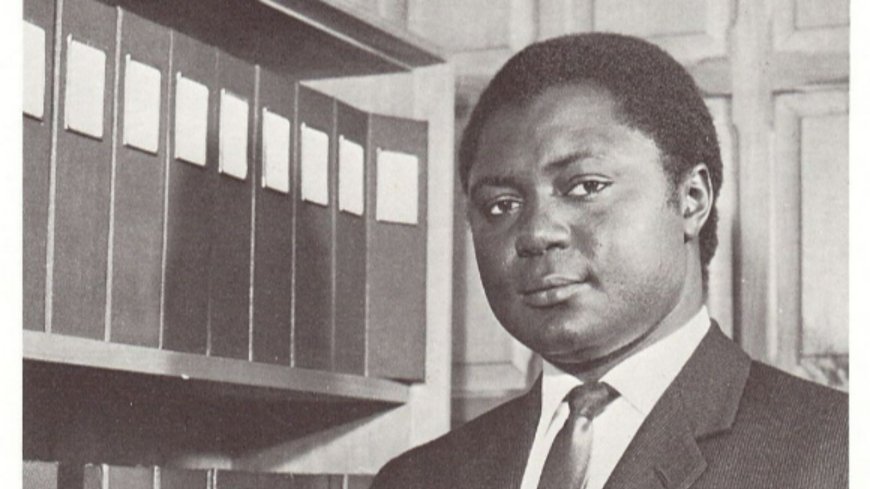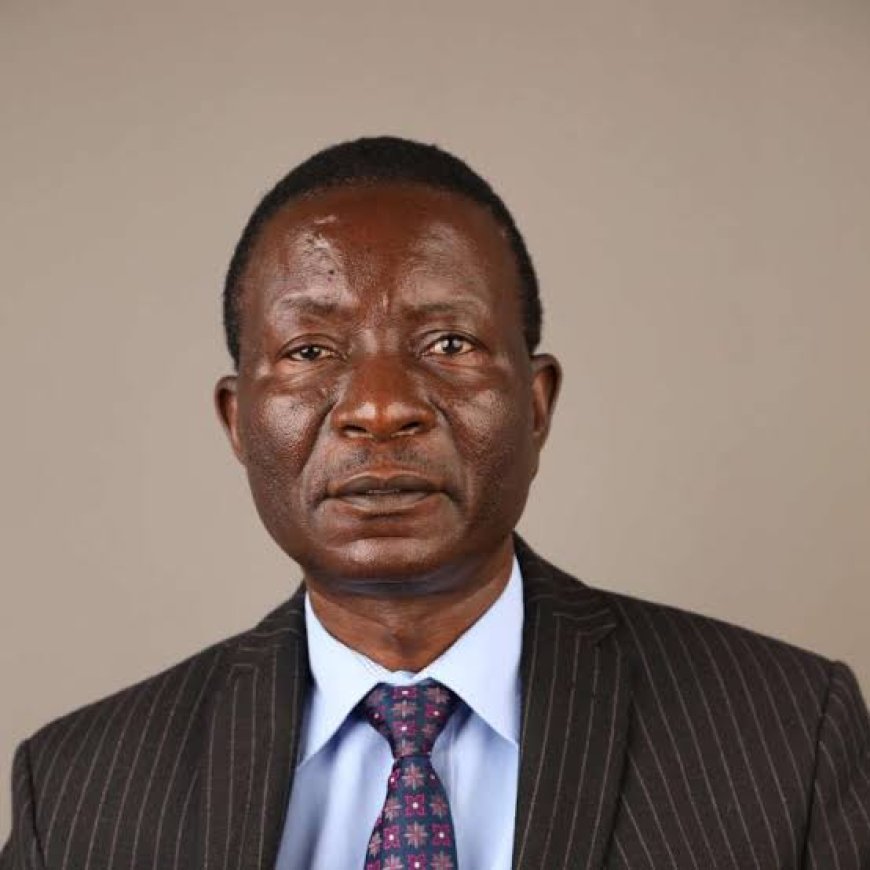LIST: Kenyan Politicians Who Have Been Assassinated
These targeted killings, often shrouded in mystery and controversy, have not only silenced influential voices but have also exposed the deep-seated issues of political rivalry, ethnic tensions, and systemic impunity.

Kenya's political history is marked by a series of high-profile assassinations that have left indelible scars on the nation's collective memory.
These targeted killings, often shrouded in mystery and controversy, have not only silenced influential voices but have also exposed the deep-seated issues of political rivalry, ethnic tensions, and systemic impunity.
This comprehensive account delves into the lives and tragic ends of notable Kenyan politicians who were assassinated, shedding light on the circumstances surrounding their deaths and the lasting impact on the country's political landscape.
Senior Chief Waruhiu (1890–1952)
Senior Chief Waruhiu was a colonial chief known for his loyalty to the British administration during the Mau Mau uprising.
On October 7, 1952, Waruhiu was assassinated near Gachie, outside Nairobi, by gunmen believed to be associated with the Mau Mau movement.

On 7 October 1952, Senior Chief Waruhiu wa Kungu, a pillar of the Kikuyu establishment in Kiambu District, was assassinated. /STANDARD DIGITAL
His death prompted the British colonial government to declare a state of emergency, leading to intensified crackdowns on the Mau Mau and their sympathisers.
Pio Gama Pinto (1927–1965)
Pio Gama Pinto was a Kenyan journalist, politician, and freedom fighter of Goan descent. A staunch socialist, Pinto played a pivotal role in Kenya's struggle for independence, using his journalistic prowess to advocate for anti-colonial sentiments. He was instrumental in founding the Kenya African National Union (KANU) and was a close ally of Jomo Kenyatta.
On February 24, 1965, Pinto was assassinated in Nairobi's Westlands neighbourhood. As he waited in his driveway for the gate to open, assailants shot him at close range.
His death marked the first political assassination in independent Kenya. While Kisilu Mutua was convicted of the murder, he maintained his innocence, and the true masterminds behind the assassination remain unidentified.
Speculations suggest that Pinto's socialist ideologies and opposition to neocolonial influences may have made him a target.

Photo of the late Pio Gama Pinto. /PAUKWA
Tom Mboya (1930–1969)
Tom Mboya was a charismatic trade unionist, educator, and Pan-Africanist who emerged as a prominent figure in Kenya's post-independence government.
Serving as the Minister for Economic Planning and Development, Mboya was instrumental in shaping Kenya's economic policies and was seen as a potential successor to President Kenyatta.
On July 5, 1969, Mboya was gunned down on Moi Avenue in Nairobi after visiting a pharmacy. The assassin, Nahashon Isaac Njenga Njoroge, was apprehended and later executed.

An old photo of the late Tom Mboya. /FILE
However, during his arrest, Njoroge's cryptic statement, "Why don't you go after the big man?" fueled speculations of a larger conspiracy.
Mboya's assassination triggered widespread riots and deepened ethnic divisions, particularly between the Luo and Kikuyu communities.
J.M. Kariuki (1929–1975)
Josiah Mwangi Kariuki, popularly known as J.M. Kariuki, was a vocal critic of the Kenyatta regime and an advocate for the poor.
As a Member of Parliament for Nyandarua North, Kariuki's socialist leanings and calls for equitable wealth distribution earned him both admiration and enmity.
In March 1975, Kariuki disappeared under mysterious circumstances. His mutilated body was later discovered in a thicket, bearing signs of torture.

Photo of JM Kariuki. /STANDARD DIGITAL
The government's initial denial and subsequent mishandling of the investigation led to public outrage and protests. Despite the establishment of a parliamentary committee to probe the murder, no one was held accountable, and the case remains unresolved.
Robert Ouko (1931–1990)
Dr. Robert Ouko served as Kenya's Minister for Foreign Affairs and was a respected diplomat known for his integrity.
In February 1990, Ouko's charred body was found near his rural home in Koru, Nyanza Province. The gruesome nature of his death, coupled with his recent trip to Washington, D.C., where he reportedly met with U.S. officials, sparked numerous theories about the motive behind his assassination.

Photo of Robert Ouko. /STANDARD DIGITAL
Investigations implicated high-ranking government officials, including Nicholas Biwott, a close ally of President Moi. However, despite multiple inquiries, including one by Scotland Yard, the case remains unsolved, symbolising the challenges of addressing high-level political crimes in Kenya.
George Muchai (1954–2015)
George Muchai, the Deputy Secretary-General of the Central Organisation of Trade Unions (COTU) and Member of Parliament for Kabete, was known for his anti-corruption stance.
On February 7, 2015, Muchai, along with his two bodyguards and driver, was ambushed and shot dead at the Kenyatta Avenue-Uhuru Highway roundabout in Nairobi. The attackers, who escaped with a briefcase and firearms, were believed to be part of a criminal gang.

Photo of George Muchai. /KENYA STOCKHOLM BLOG
Seven suspects were arrested, but the case has seen numerous delays, with the defence hearing scheduled for February 2025.
Muchai's assassination highlighted the risks faced by politicians challenging entrenched interests.
Mellitus Mugabe Were (1968–2008)
Mellitus Mugabe Were was elected as the Member of Parliament for Embakasi in the December 2007 general elections on an Orange Democratic Movement (ODM) ticket. On January 29, 2008, amid post-election violence, Were was shot outside his home in Nairobi's Woodley Estate.

Melitus Mugabe Were. /FACEBOOK
According to reports, as Were waited for his gate to be opened, assailants approached and shot him at close range. Three suspects were arrested, convicted, and sentenced to death for the murder.
Were's death further inflamed the already volatile political climate in the country.
Charles Were (1975–2025)
The now former Kasipul Member of Parliament was shot dead by unidentified attackers on the evening of Wednesday, April 30, 2025, near the City Mortuary roundabout along Ngong Road in Nairobi.
As detailed in a police report, the incident occurred around 7:30 p.m. when a white Toyota Crown stopped at a red light on Ngong Road. Shortly after, a motorcycle carrying two individuals—one riding and one as a passenger—pulled up beside the vehicle.
The passenger got off the bike, approached the car, and opened fire on the MP before quickly hopping back on the motorcycle and fleeing the scene.
Efforts to save Were’s life by rushing him to Nairobi Hospital were unsuccessful, as he was pronounced dead shortly after arrival.
Police later described the attack as targeted and premeditated. Were was a member of the opposition ODM party, and his death has raised concerns about the resurgence of political assassinations in Kenya.







